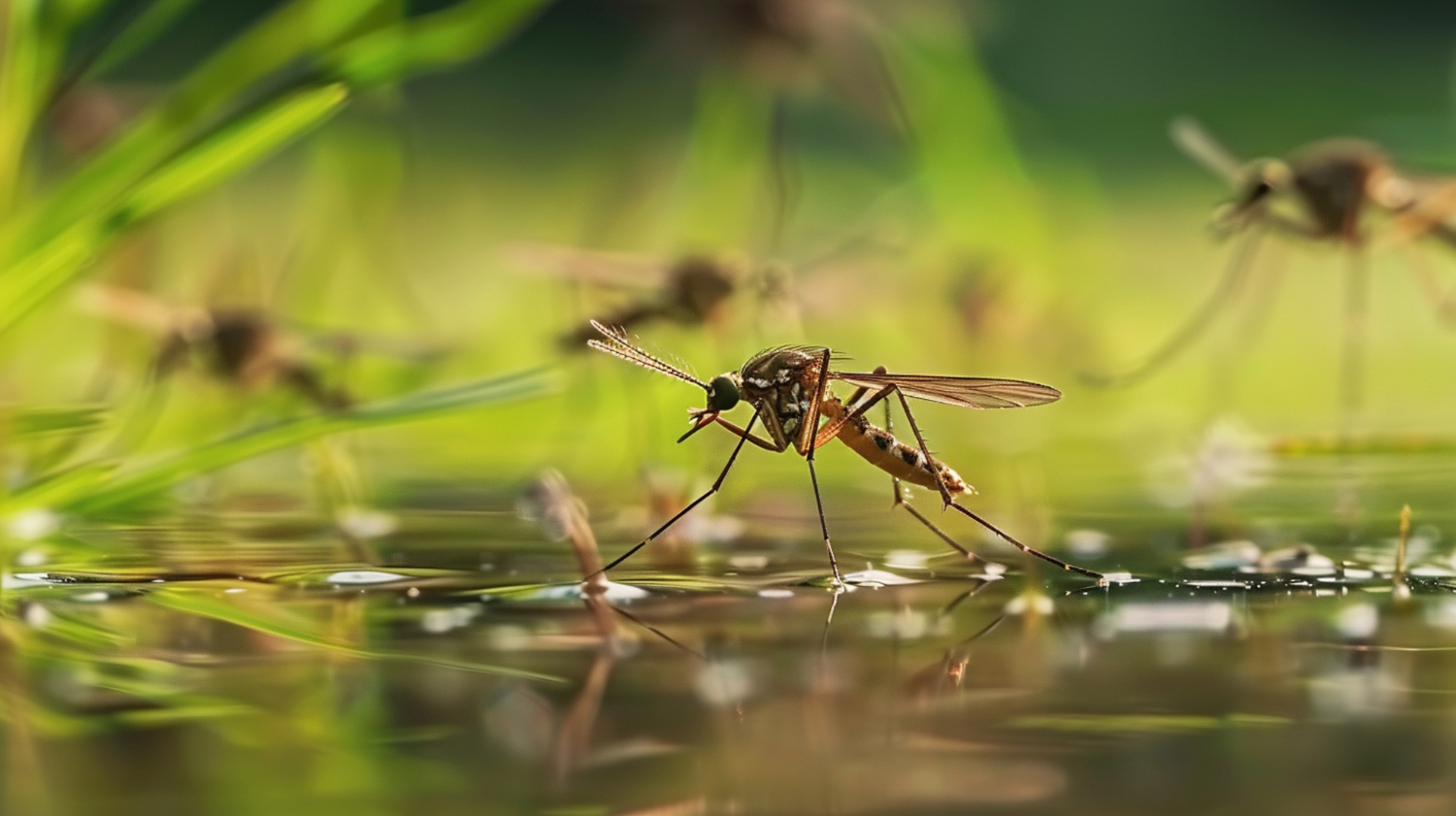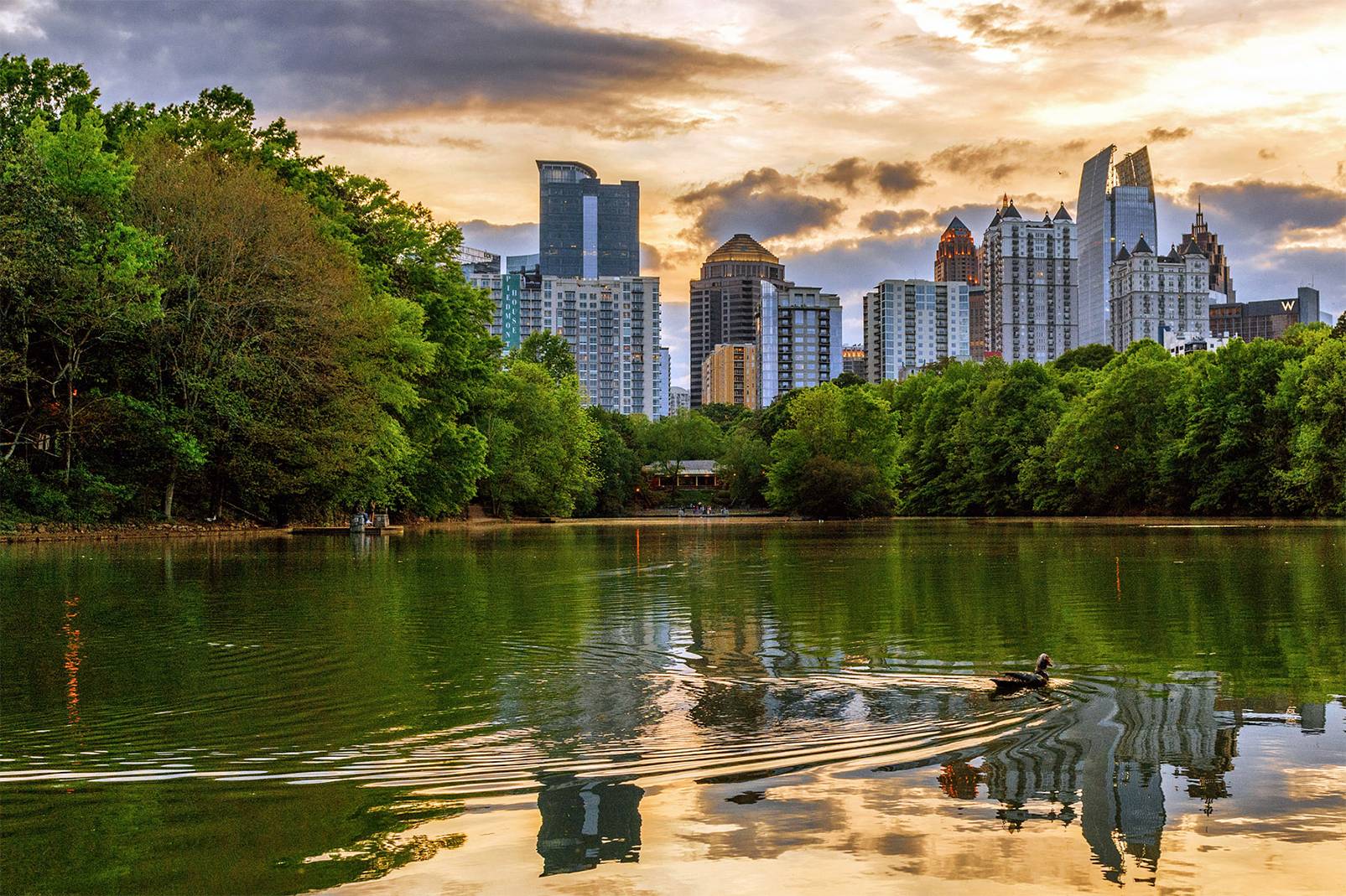
Mosquitoes go hand in hand with lakes and ponds because they provide an ideal environment for laying eggs and for the larvae to develop in stagnant water. In addition to being a nuisance, mosquitoes can transmit dangerous diseases like malaria, dengue fever, Zika virus, yellow fever, and more. If you ask lake owners about the biggest challenge they face, they’ll likely mention controlling mosquito populations. Therefore, it’s important to be equipped with mosquito control tactics to keep these pests at bay.
In this blog post, Aquatic Restoration walks you through the six important things you need to know about mosquitoes and lake management. Our experts provide you with crucial information that will help you get rid of mosquitoes around your lake.
Mosquitoes lay their eggs in still, shallow water. When lakes or ponds have areas with little to no water movement, they become prime breeding grounds for mosquito larvae. Managing water circulation is important to prevent mosquito populations from increasing. Aerators, fountains, or surface agitators can help keep water moving, which deters mosquitoes from laying eggs and interrupts their life cycle.
Aquatic plants provide shade, oxygen, and beauty to a lake, but too much dense vegetation around the shoreline or floating on the surface can create hidden pockets of stagnant water. These areas become mosquito havens. It’s advisable to properly manage plant growth with regular trimming or introduce plant species that don’t encourage mosquito breeding. This is a smart part of any lake or pond management plan.
Mosquitoes aren’t just a nuisance; they’re known vectors of dangerous diseases such as West Nile virus, Zika virus, malaria, and dengue fever. In areas with lakes or standing water, the risk of transmission increases. Effective lake management isn’t just about aesthetics; it’s also about protecting the health of people, pets, and local wildlife.

One of the best natural mosquito control methods is to encourage the presence of mosquito predators. Fish species like Gambusia, dragonflies, and certain birds feed on mosquito larvae and adults. Pond management experts in Madison, GA recommend you stock your lake with the right types of fish and maintain a balanced ecosystem to reduce mosquito populations without chemicals.
While natural controls are ideal, sometimes they need a helping hand, especially during peak mosquito season. Larvicides like Bti are safe for humans, pets, and most aquatic life but deadly to mosquito larvae. Surface treatments can also help in targeted areas. Always follow proper application guidelines to avoid harming the environment. It’s a good idea to enlist the services of a professional pond management company when you need help with mosquito control.
Lake management isn’t a one-and-done task. It requires routine inspections and maintenance to keep mosquitoes at bay. This includes removing debris, trimming overgrown vegetation, lake dredging, checking for areas with poor drainage, and monitoring water quality. Creating a seasonal lake management plan will help you stay on top of issues before they escalate.
Do you need help with restoring your lake to its pristine condition? Have mosquitoes become a menace, and you need professional help? Look no further than Aquatic Restoration. We are a professional lake management company with over 35 years of experience restoring waterways. Some of the services we offer include lake dredging, shoreline stabilization, spillway renovation, retention pond maintenance, and many more.
Lake dredging is an integral part of restoring waterways and improving their overall health. This maintenance procedure is necessary to…
There’s no such thing as a maintenance-free retention pond, as much as we’d like there to be. These stormwater…
Lake and pond dredging is an essential maintenance task that helps to improve water quality, restore depth and capacity,…
There’s a lot that goes into managing a lake. Beyond the aesthetics, it’s important to maintain ecological balance and…